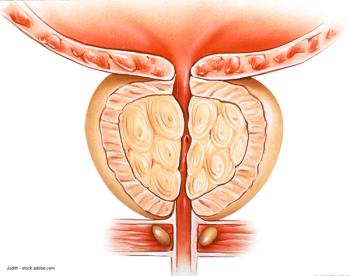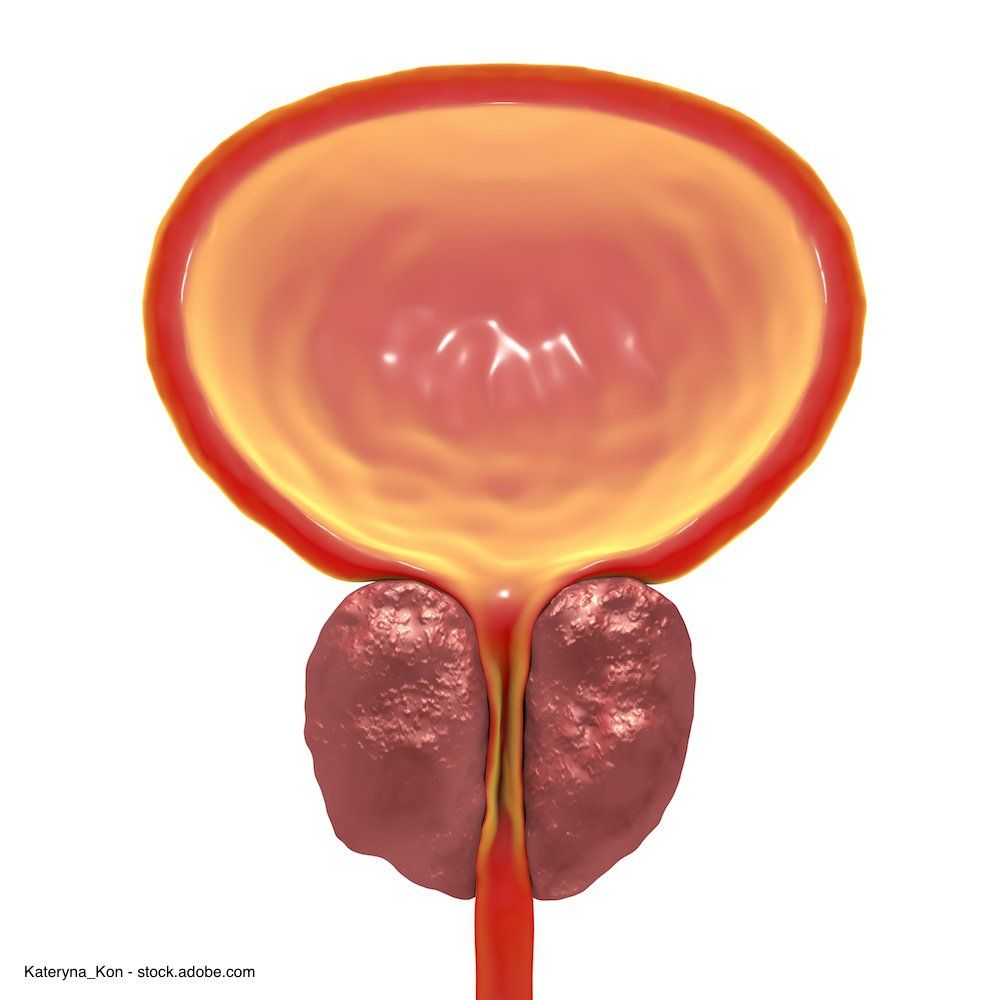
Men's Health
Latest News

Latest Videos

CME Content
More News

Cycling has multiple benefits, and steps can be taken to prevent genitourinary injury.

A course of treatment with prednisone may offer improvement in mean total motile count for men who undergo vasectomy reversal and subsequently have partial or complete anastomotic obstruction, according to a recent study.

Prostatic artery embolization offers a safe and durably effective treatment for urinary retention and gross hematuria in challenging non-index BPH patients, according to the results of a retrospective study published in Urology (Nov. 14, 2019 [Epub ahead of print]).

Results of a cross-sectional study of adult American men show that adherence to a low-fat diet is associated with a lower serum testosterone level.

Men who undergo transurethral resection of the prostate are more likely to need a repeat procedure if their urologist graduated medical school after 1995 rather than earlier, according to findings of a retrospective population-based cohort study.

Researchers studying a novel multimodal analgesia protocol at multiple institutions in the U.S. for patients having penile implant surgery found narcotic prescriptions before, during, and in the post-surgery recovery period fell from as high as 50 to 60 narcotic pills to 10 to 15 pills.

An expert multidisciplinary panel using robust methodology has developed recommendations for guiding urinary catheter management after transurethral surgery for BPH.

Guideline-directed care often leads to better outcomes, but that’s not the case with the AUA’s antibiotic prophylaxis guidelines for diabetic patients undergoing primary penile prosthesis implantation. Authors of an ongoing study have found that adhering to the antibiotic prophylaxis guidelines results in a five-fold increased infection risk among diabetic penile prothesis patients, greatly increasing their risk for explantation.

Results from analyses of data collected in the randomized, placebo-controlled Reduction by Dutasteride of prostate Cancer Events (REDUCE) trial point to a potential role for statins in attenuating age-related prostate enlargement.

A recent study found low levels of free testosterone in older men with prostate cancer could increase these men’s odds of facing erectile dysfunction after undergoing radical prostatectomy.

Findings from an analysis of data collected prospectively over an 18-year period provide further evidence supporting guidelines that recommend holmium laser enucleation of the prostate as the size-independent gold standard for surgical management of BPH, say urologists from McGill University, Montreal.

Urology Times interviewed four leading urologists who are experts in BPH to get their take on the most important BPH studies of 2018 and 2019.

A set of evidence-based nomograms for predicting recovery of erectile function after radical prostatectomy is now available, and the developers hope that surgeons will use these tools to provide prostate cancer patients with a more accurate personalized estimate of their sexual function outcome.

A patient-reported outcomes survey that is widely used to determine whether men are experiencing erectile dysfunction (ED) fails to ask three critical questions that could uncover whether men truly have ED and the extent to which they face challenges, researchers say.

Results from analyses of data collected in the randomized, placebo-controlled Reduction by Dutasteride of prostate Cancer Events (REDUCE) trial point to a potential role for statins in attenuating age-related prostate enlargement.

Researchers comparing cost and outcomes for surgery, collagenase clostridium histolyticum (CCH [Xiaflex]), and RestoreX traction therapy for Peyronie’s disease found traction is the most cost-effective option for achieving 20% or greater curvature improvement, but CCH or surgery might be more cost-effective and efficacious in specific scenarios.

Androgen deprivation therapy for advanced prostate cancer may increase the likelihood of urethral atrophy in men with an artificial urinary sphincter (AUS), thereby contributing to an increased risk of AUS cuff erosion.

"I basically choose the procedure based on the patient’s anatomy," says one urologist.

The long-term durability of surgical modalities for management of BPH varies significantly, findings from a retrospective study suggest.

Data from prospective clinical trials show that the efficacy of high-velocity waterjet ablation (Aquablation using the AquaBeam System) for improving BPH-related signs and symptoms is the same in patients with a large-to-very large prostate as in men with a small-to-moderate size gland, said Naeem Bhojani, MD, at the AUA annual meeting in Chicago.

"We have entered a renaissance in the care for patients with benign prostatic hyperplasia-related lower urinary tract symptoms," writes Steven A. Kaplan, MD.

Urologists should be open minded that more people are turning to the Internet for health care advice or services and should consider reaching patients where they live and work by implementing telemedicine, when it makes sense, or in their own online communications, according to Aaron Spitz, MD, of Orange County Urology Associates in California.

Novel sites catering to men emerge, along with conflicting views about Internet-based care.

Researchers at the Mayo Clinic report that they have developed a legitimate penile traction therapy device for men with Peyronie’s disease that may work when used for just 30 to 90 minutes daily.

A study evaluating outcomes of the prostatic urethral lift (PUL; UroLift System) in clinical practice show that the efficacy and safety documented in the selected group of men enrolled in clinical trials is maintained across the broader spectrum of patients who present for treatment of symptomatic BPH in the real-world setting.














